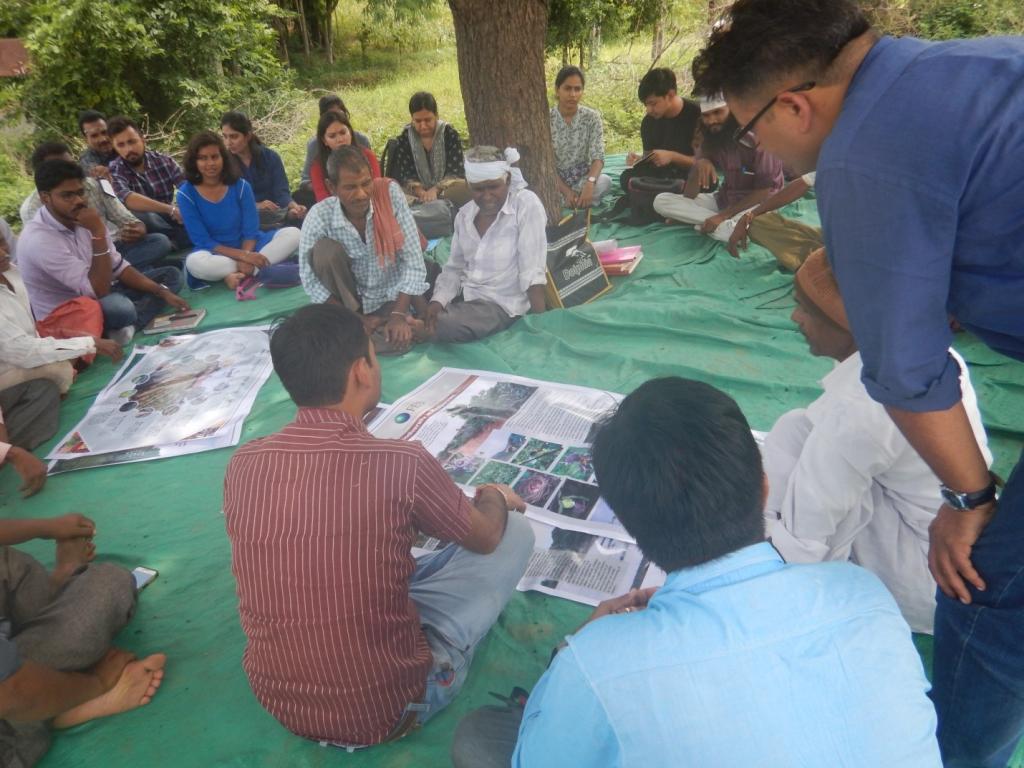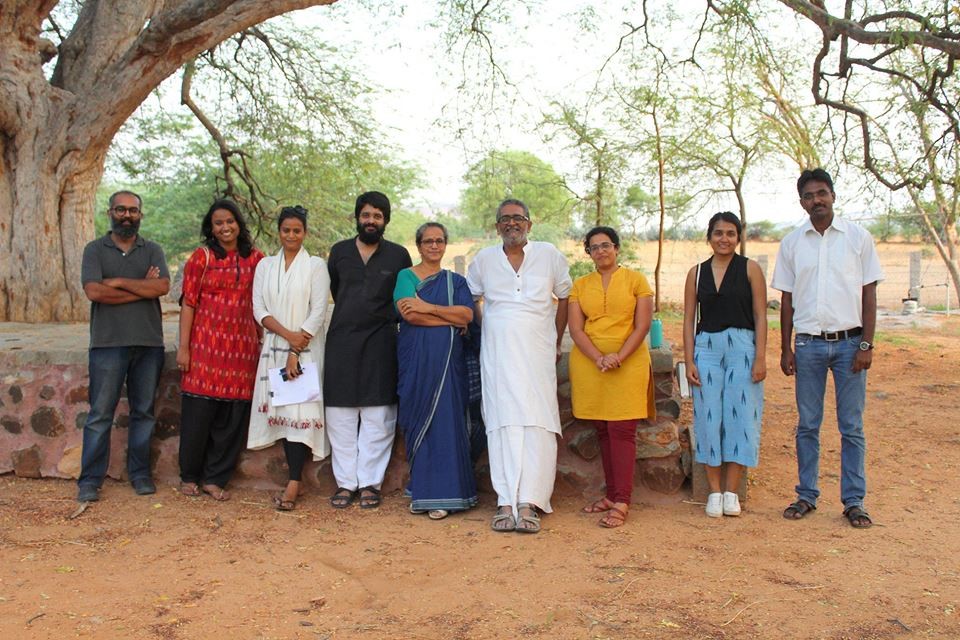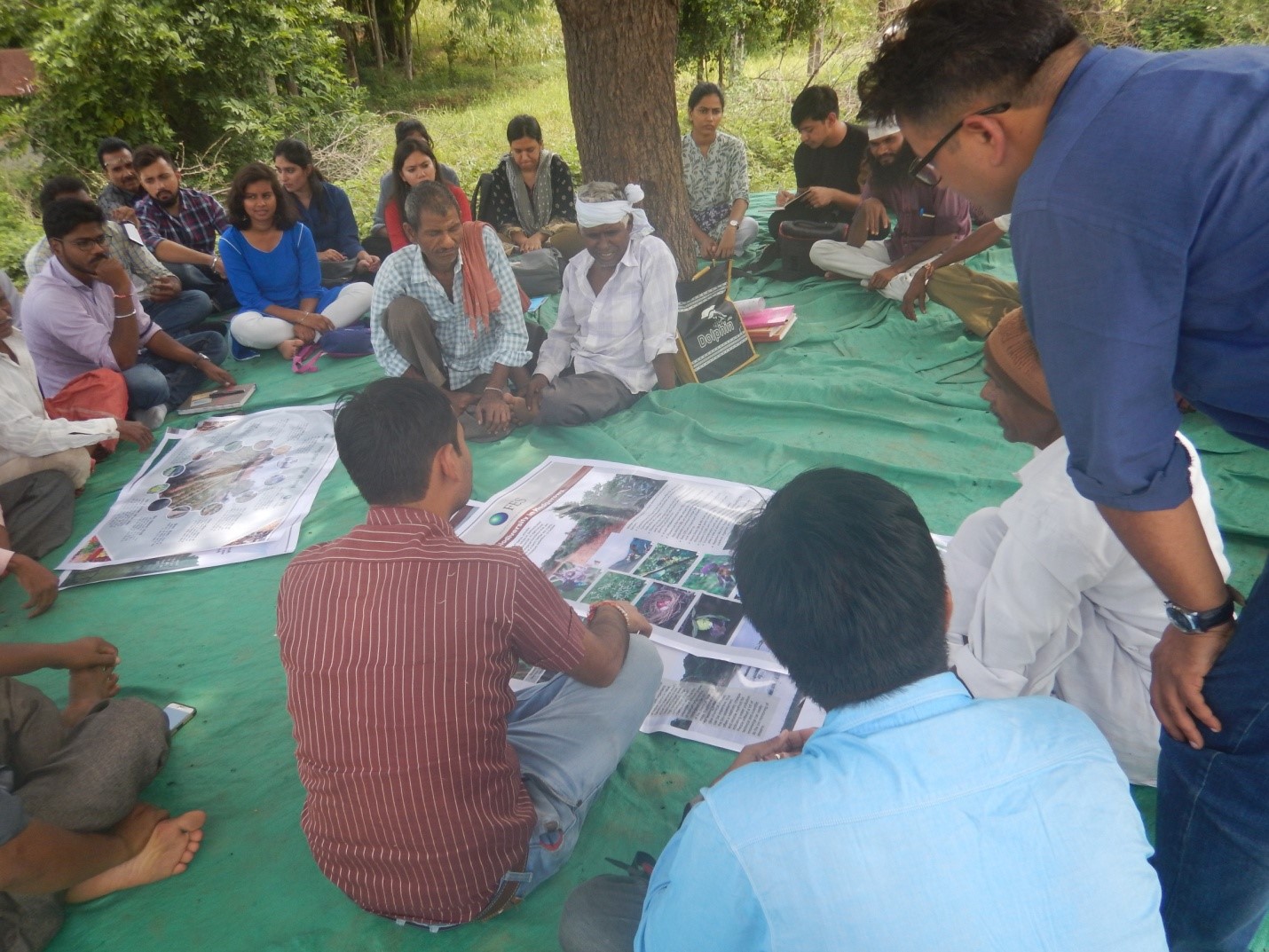My experience of video-making for the Research-into-Use Small Opportunities Grant

by Greeshma Hedge, Indian Institute for Human Settlements
I was awarded the Research-into-Use Small Opportunities Grant (RiU SOG) by START in 2018. As someone who believes in taking advancements in climate and environment research to broader audiences, the RiU SOG was a perfect platform for me to test my understanding of research and its effective communication. My aim was to explore ways in which local knowledge and practices are used and transferred in particular contexts and, through the RiU SOG, to develop two videos based on footage collected as part of the ASSAR research on knowledge systems.
| Knowledge brokers: Nagaland | Knowledge brokers: Rajasthan |
Conducting research and writing about it requires a particular set of skills but representing those findings in a manner that is nuanced, visually appealing and hard hitting, is a whole new ball game! The development of the two videos had its own challenges and the experience taught me the importance of communication through audio and visuals. The process had to be methodical. Every little modification had to follow a specific process.
The footage for the videos was collected during field visits to Nagaland in the North East of India and Rajasthan in Western India. All the material for the video had to be first collated, including through transcription of the interviews to make a flow for the video; and development of the narration, backed by literature and explained through animations, images and maps. The script for the narration was carefully developed bearing in mind the different geographies and institutional roles. Context, in each of these case studies was highly important and thus the development of the videos was different in the learning that they provided. The narration was then woven with video interviews of members from the two organisations. After my brief narrating stint for these videos, I am convinced that if not research, I must definitely try out a career in advertisement or radio :P
The support from a film editor (Vinay Ghodgeri) and an animator (Radha Mohini), reviews from Amir Bazaz, and key insights on documentary making and visual methods of data collection from IIHS’s in-house media team made the videomaking process very interesting. I had never been part of such a project.
The video-making experience was a mini project on its own, where I found myself wearing multiple hats. I had to execute the roles of researcher, director, script writer, narrator and pick suitable background music pieces for the videos. I learned what ASSAR members have already stated earlier that RiU as a process should be thought of, from the beginning and not just at the end.
The RiU SOG also supported additional field work based on the findings that emerged from the knowledge systems research, to further explore organisations that promote local practices, mainly in semi-arid regions. Two organisations were short-listed as potential cases, namely, Timbaktu Collective located in Andhra Pradesh (Southern India) and Foundation for Ecological Security (FES) located in Gujarat (Western India).
1. Timbaktu Collective: The Collective works on areas that face chronic droughts, have unproductive land, and struggle with unemployment and poor infrastructural facilities. Timbaktu Collective’s main motive is to promote local self governance and it has set up many village-based collectives and cooperatives for the marginalized sections of society that are owned and managed by them. These cooperatives are formed mainly around enhancing livelihoods, ecological restoration of wastelands, creating thrift-and-credit based financial systems for women and farmers, among others.

At Timbaktu Collective (L-R: Sandeep, Greeshma, Molly, Teja, Mary, Bablu, Garima, Vineetha, Dhanpal)
2. Foundation for Ecological Security (FES): An organisation that works towards natural resource conservation and management by promoting collective action among local communities. Focusing largely on ecological restoration, commons and community institutions and rural livelihoods, FES fosters local governance of shared natural resources that in turn affects the education, health and access to economic opportunities in particular rural contexts.

Members from the Foundation for Ecological Security take in inputs from the locals of Dahod viilage in Gujarat, on the existing biodiversity of the region. This data is then incorporated into FES’s institutional knowledge.
Being part of the Adaptation at Scale in Semi-arid Regions (ASSAR) project has opened up many avenues, changed my perceptions and has helped me engage in new ideas. I want to thank colleagues from IIHS who helped me in this entire process, including Amir Bazaz, Yashodhara Udupa, Sandeep Vishwanath and Zohrab Reyes Gamat.
The Nagaland video was also featured on CDKN.